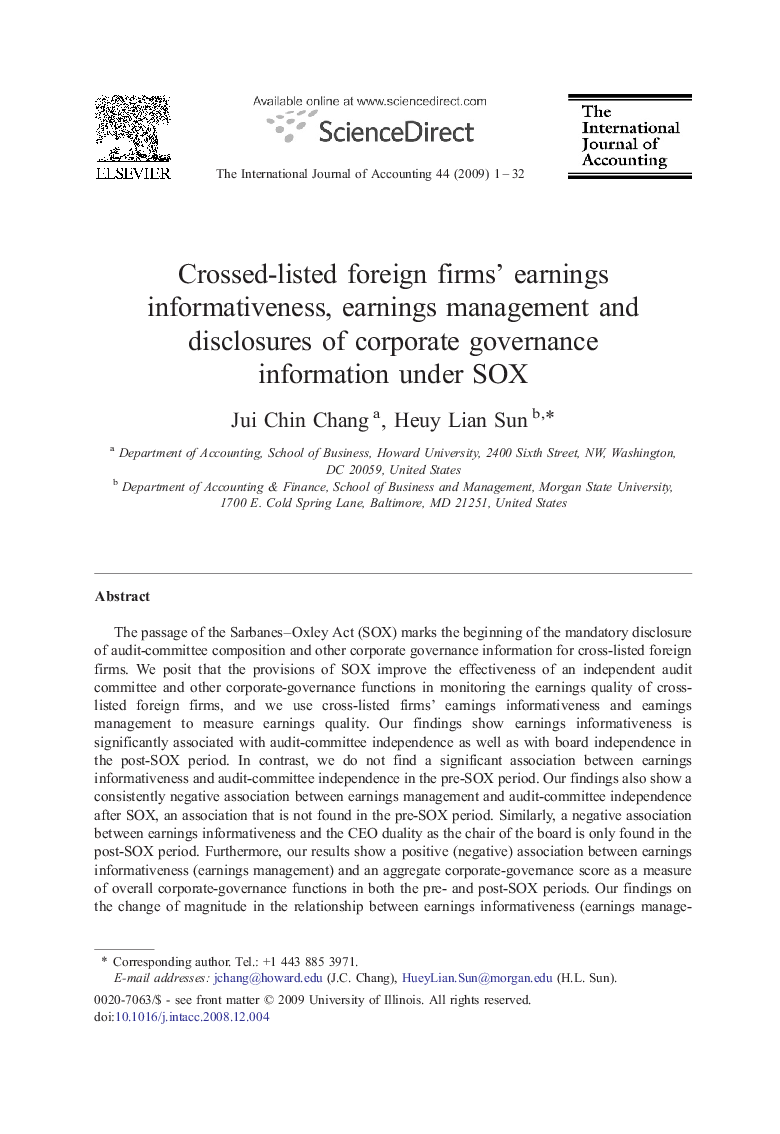| Article ID | Journal | Published Year | Pages | File Type |
|---|---|---|---|---|
| 1005173 | The International Journal of Accounting | 2009 | 32 Pages |
The passage of the Sarbanes–Oxley Act (SOX) marks the beginning of the mandatory disclosure of audit-committee composition and other corporate governance information for cross-listed foreign firms. We posit that the provisions of SOX improve the effectiveness of an independent audit committee and other corporate-governance functions in monitoring the earnings quality of cross-listed foreign firms, and we use cross-listed firms' earnings informativeness and earnings management to measure earnings quality. Our findings show earnings informativeness is significantly associated with audit-committee independence as well as with board independence in the post-SOX period. In contrast, we do not find a significant association between earnings informativeness and audit-committee independence in the pre-SOX period. Our findings also show a consistently negative association between earnings management and audit-committee independence after SOX, an association that is not found in the pre-SOX period. Similarly, a negative association between earnings informativeness and the CEO duality as the chair of the board is only found in the post-SOX period. Furthermore, our results show a positive (negative) association between earnings informativeness (earnings management) and an aggregate corporate-governance score as a measure of overall corporate-governance functions in both the pre- and post-SOX periods. Our findings on the change of magnitude in the relationship between earnings informativeness (earnings management) and corporate governance suggest that the SOX provisions improve the effectiveness of cross-listed foreign firms' corporate-governance functions in monitoring the quality of accounting earnings.
